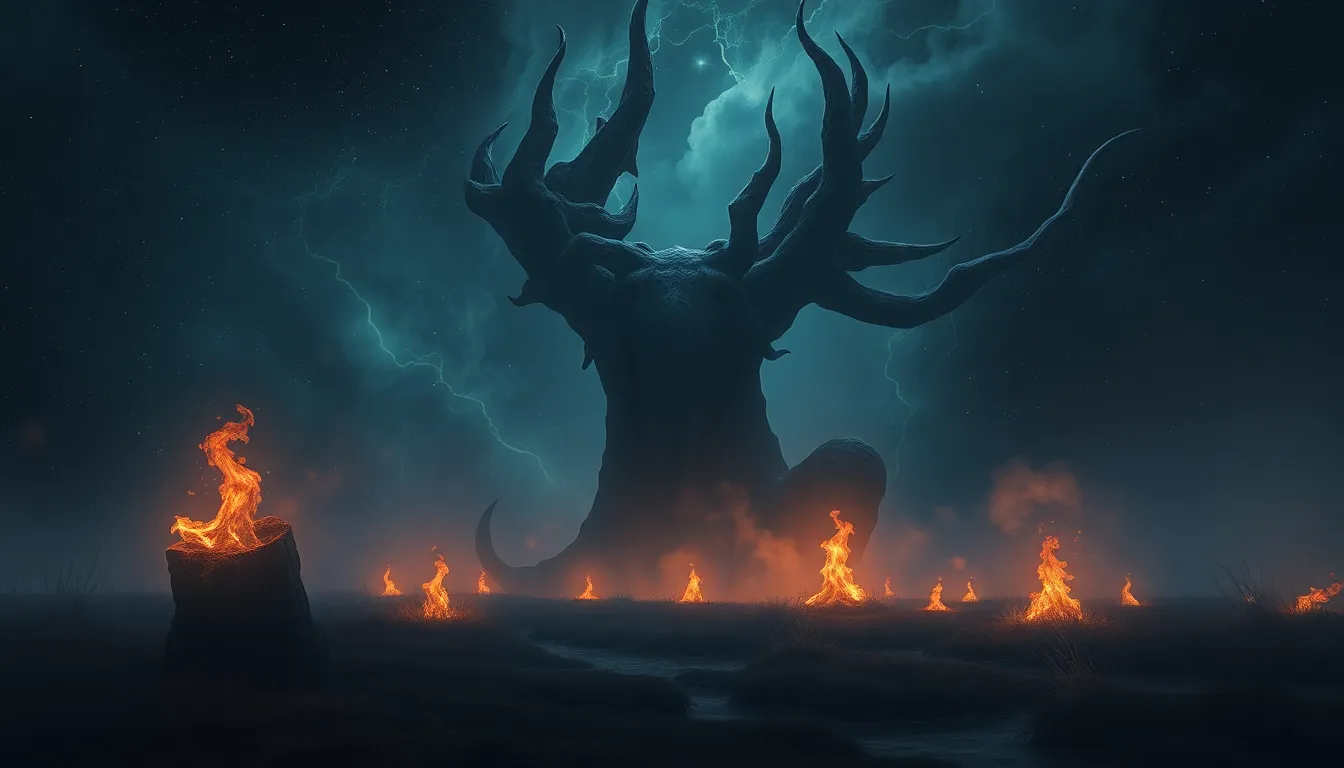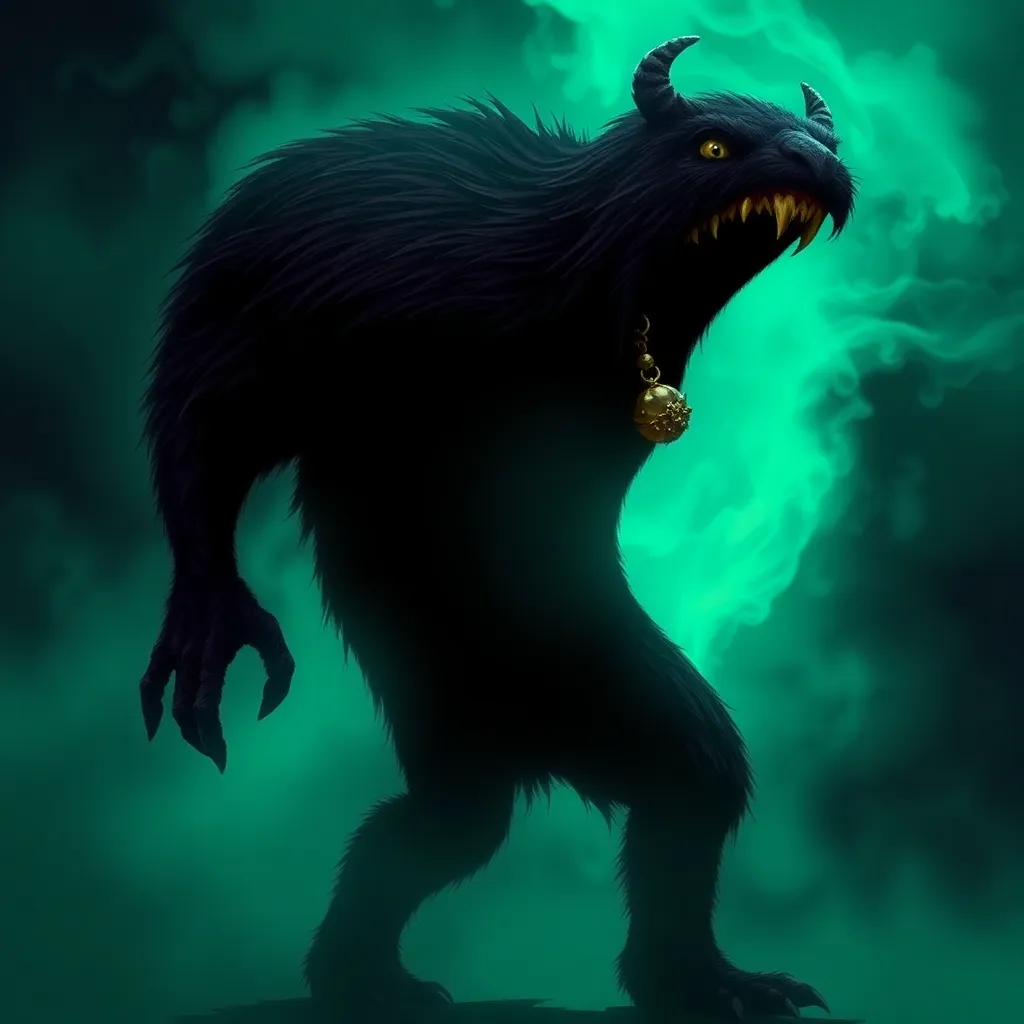The Lore of the Land: Exploring the Spirits of the Scandinavian Fylgja
I. Introduction to Fylgja
The Fylgja is a fascinating and significant concept within Norse mythology, representing a spirit companion that is believed to follow an individual throughout their life. The term “fylgja” translates to “to accompany” in Old Norse, emphasizing this spirit’s role as a guardian and guide. In Scandinavian traditions, the Fylgja is not merely a figment of the imagination; it embodies the connection between the individual and the spiritual world, often manifesting in animal forms.
Throughout history, the Fylgja has played a crucial role in the cultural fabric of Scandinavian societies. It serves as a reminder of the deep-seated beliefs in the supernatural and the importance of spiritual guidance in daily life. Understanding the Fylgja opens a window into the rich tapestry of Norse mythology and the values that shaped Viking society.
II. Historical Context of the Fylgja
The origins of the Fylgja can be traced back to ancient Norse culture, where it was intertwined with the beliefs of the Viking Age. Early Norse society was steeped in animism, where every creature and natural element had a spirit. The Fylgja emerged as a personal spirit, reflecting individual destiny and fortune. In this context, the Fylgja was believed to be an extension of one’s soul, often taking the form of an animal that resonated with the individual’s character.
In Viking beliefs and practices, the Fylgja held a prominent place. It was not uncommon for warriors to invoke their Fylgja for strength and guidance before battle. Additionally, the Fylgja’s presence was thought to influence one’s fate, shaping life events and personal journeys.
The oral traditions of the Norse people played a vital role in preserving Fylgja lore. Through storytelling, generations passed down tales of encounters with Fylgja, ensuring that the knowledge and significance of these spirit companions remained alive.
III. The Nature of the Fylgja
The Fylgja is described as a spirit companion that accompanies individuals throughout their lives. Unlike other spirit entities in Norse mythology, such as the Hamingja (a collective luck or fortune) or the Landvaettir (spirits of the land), the Fylgja has a more personal connection to the individual.
Key differences include:
- Fylgja: A personal spirit that reflects individual destiny.
- Hamingja: Represents collective luck associated with a family or clan.
- Landvaettir: Spirits tied to specific geographical locations, such as mountains or rivers.
Symbolically, the Fylgja often takes on animal forms, which can provide insight into the personality and destiny of the individual. Common animal representations include:
- Wolf – Symbolizing strength and independence.
- Eagle – Representing vision and freedom.
- Bear – Indicating courage and protection.
IV. Fylgja in Folklore and Mythology
Fylgja appears in numerous myths and stories within Norse mythology, highlighting its importance. One notable myth involves the legendary hero Sigurd, whose Fylgja manifests as a falcon, guiding him through trials and tribulations.
In many tales, the Fylgja is linked to concepts of fate and personal destiny. It is believed that the presence of a Fylgja can indicate the inherent qualities and potential paths an individual may take in life. Historical texts and sagas, such as the “Saga of the Ynglings,” reference Fylgja and their influence on notable figures, showcasing their integral role in shaping narratives and destinies.
V. Fylgja and Personal Identity
The connection between the Fylgja and individual personality traits is profound. The characteristics of one’s Fylgja can often mirror or amplify the strengths and weaknesses of the individual. For instance, a person with a wolf Fylgja may exhibit traits of loyalty and courage, while someone with a fox Fylgja might display cunning and adaptability.
This connection extends beyond mere personality; the Fylgja is believed to influence one’s life path and choices. Many practitioners report that their Fylgja has guided them during pivotal moments, providing insights that shape their decisions.
Case studies of individuals who have experienced meaningful connections with their Fylgja illustrate this influence:
- A young woman who embraced her eagle Fylgja found clarity in pursuing her dreams of travel and adventure.
- A man who discovered his bear Fylgja gained the courage to confront challenges in his personal life.
VI. Modern Interpretations of Fylgja
In contemporary pagan practices and neo-Norse spirituality, the Fylgja has seen a resurgence of interest. Practitioners often seek to connect with their Fylgja through rituals, meditation, and offerings, aiming to deepen their understanding of their personal spirit companions.
The interest in Fylgja extends beyond religious practices, as modern audiences explore the themes of identity, fate, and connection to nature. Artistic representations of Fylgja can be found in literature, art, and media, reflecting the enduring fascination with these spirit beings.
VII. Connecting with Your Fylgja
Identifying and understanding one’s own Fylgja can be a transformative experience. Here are some methods to connect:
- Dream Journaling: Keep a journal of your dreams, as Fylgja may reveal themselves through symbols and animals.
- Meditation: Engage in meditative practices focused on connecting with your spirit companion.
- Nature Walks: Spend time in nature, observing animals and reflecting on their significance.
Rituals and practices to honor and connect with your Fylgja may include:
- Creating an altar with symbols representing your Fylgja.
- Offering food or gifts to nature as a sign of respect.
- Engaging in creative expressions, such as art or writing, inspired by your Fylgja.
Anecdotes from practitioners emphasize the profound impact of these connections. Many share experiences of guidance and clarity that arose from honoring their Fylgja.
VIII. Conclusion: The Enduring Legacy of Fylgja
The significance of the Fylgja in both ancient and modern contexts cannot be overstated. It serves as a bridge between the individual and the spiritual realm, encouraging exploration of one’s identity and destiny. As interest in Scandinavian spirituality grows, the Fylgja remains a powerful symbol of personal connection to the mystical.
Continued exploration of the Fylgja and its meanings can enrich our understanding of ourselves and the world around us. In a rapidly changing society, the lessons of the Fylgja remind us of the importance of our roots, guiding us on our journeys through life.
In conclusion, the Fylgja is not just a relic of the past but a living presence that resonates with many today, inviting us to discover our paths and embrace our spirits.



